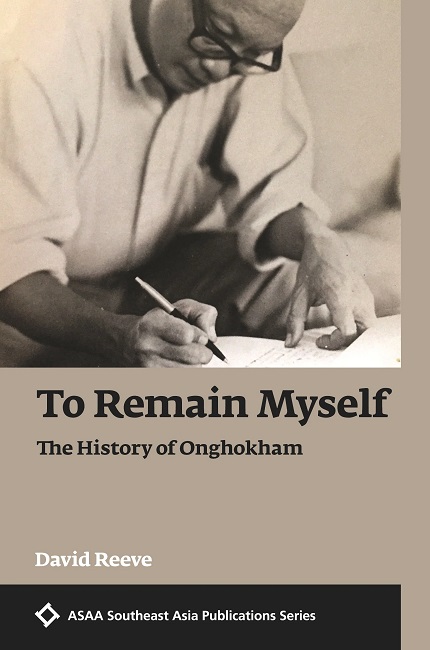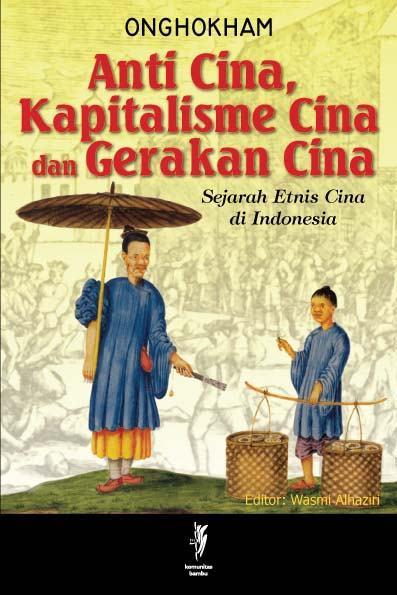Ron Witton
Onghokham (1933–2007) was an Indonesian historian and journalist who was born in East Java. Ong, as he was known, was a colourful character who interacted with a wide range of academics, politicians and activists in Indonesia as well as having close relationships with significant figures from around the world, particularly the US and Australia.
Born into a family of Chinese descent who could be described as Chinese gentry of Dutch colonial society, he lived through tumultuous times as Indonesia passed from Dutch colonial rule, through Japanese occupation and the struggle to achieve Independence. Ong was an active participant in Indonesia’s subsequent periods of parliamentary democracy, Sukarno’s Guided Democracy, Suharto’s New Order, the reformation period and beyond. The day-to-day events of the nation were the grist for Ong’s journalist career while all the time, as a historian, he drew on Indonesia’s pre-colonial and colonial past to give context to Indonesian culture, personalities and events.
As a public intellectual, he drew on his own experience as a person of Chinese descent steeped in Javanese culture, his experience as a homosexual contending with the vicissitudes of personal development and societal pressure, and his desire to live life to its fullest in terms of cuisine, travel and sociability. His arrest and jailing under the New Order, together with the challenges of mental illness, meant that he was well aware of the ups and downs of daily life while striving to live life to its fullest. In the words of his biographer, ‘Ong was a maverick, an eccentric, an alcoholic, an outsider who became an insider, a mischievous wit, a serious historian and a public intellectual, respected in Indonesia and overseas.’

What makes David Reeve’s biography such a remarkable piece of historiography, is that he has not only immersed himself in Ong’s historical studies and journalism, which provides us with insight into his eminence as a historian and political commentator, but he has also managed to unearth a trove of letters that Ong had written to his acquaintances in Indonesia and around the world. This means we have access to Ong’s intensely private thoughts of contemporaneous events over decades of Indonesian political and social change. In particular, Ong’s analyses of particular moments, only available in the letters he wrote to close friends and colleagues, are nothing short of breathtaking. For me, Ong’s contemporaneous observations in the months leading up to the 30 September 1965 ‘coup’, reveal significant aspects of Indonesian society that are oft forgotten or overlooked.
As an historian, Ong will probably be best remembered for his innovative analysis of Indonesian, and particularly Javanese, colonial and pre-colonial society. As Reeve stresses:
‘He criticised historians who portrayed Indonesian peasants as passive and accepting, given that there had been dozens of rebellions, mostly by tax-paying, landholding peasants. [He paid particular attention and gave an active role to] the real social forces of peasants, labourers and traders, groups with specific interests and social functions. Not only had they helped shape history, they had played a primary role.’
The reason I used the word ‘remarkable’ in describing this work, is that David Reeve has in some ways drawn on Ong’s inspiration ‘to see history from the inside, from the viewpoint of those who had lived in the system’. His use of Ong’s letters and newspaper articles allows us to re-live some of the turning points in Indonesian history with the active involvement of those who were living those moments.

I found the book fascinating, not least because I knew Ong and had experienced his irascible, warm and perceptive personality on those occasions we were together. However, for anyone with an interest in Indonesian historiography and politics, there is evidence in this study of the phenomenally wide range of Ong’s friends, acquaintances and colleagues from Indonesians such as Arief Budiman, Soe Hok Gie, and Taufik Abdullah, to Ben Anderson and William Skinner in the US, to Jamie Mackie and Herb Feith in Australia, as well as such media personalities as Miriam Margoles.
Ong’s interaction with major personalities of the world of Indonesian studies, illustrated through his letters and through Reeve’s deft descriptions, demonstrate Ong’s significance and importance in Indonesian history and historiography. David Reeve has done us all, and Ong, a great service.
David Reeve, To Remain Myself: The History of Onghokham, Singapore, Asian Studies Association of Australia (ASAA) Southeast Asian Publications Series, NUS Press, 2022.
Ron Witton (rwitton44@gmail.com) gained his BA and MA in Indonesian and Malayan Studies from the University of Sydney and his Ph.D. from Cornell University. He has worked as an academic in Australia and Indonesia and now practices as an Indonesia and Malay translator and interpreter.
David Reeves’s obituary of Onghokham and Heather Sutherland’s reminiscences about her friend were both published in Inside Indonesia shortly after his death in 2007.












